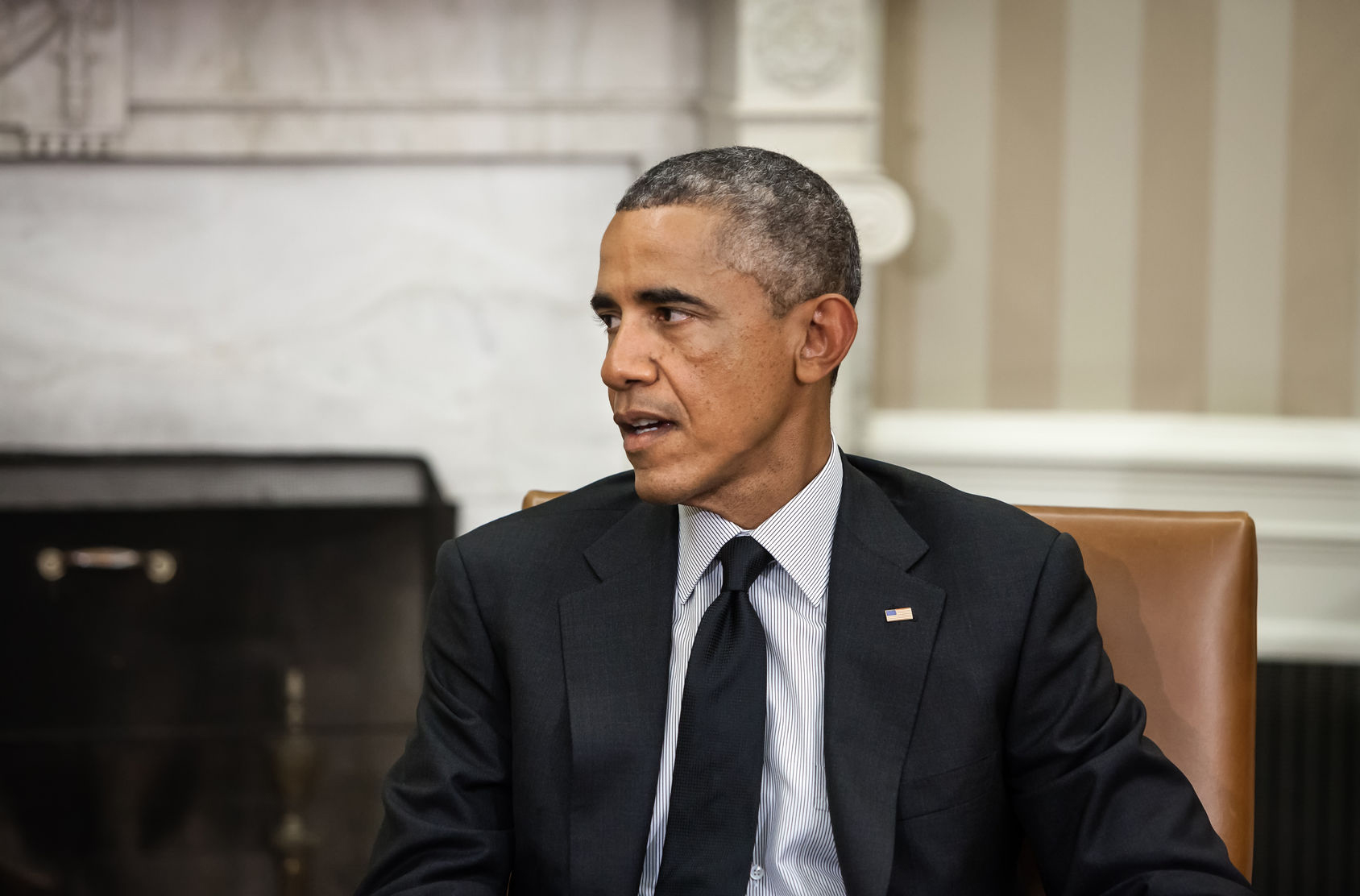As President Obama gave his valedictory speech to the United Nations General Assembly and recently returned from a farewell tour of East Asia, it sure seemed like other countries were dissing him. Rodrigo Duterte, the president of the Philippines—a small, poor country that has a territorial dispute with China in the South China Sea and depends on the U.S. military to defend it—launched a personal profane diatribe against Obama not usually used in diplo-speak. Obama’s response was to cancel a formal meeting with Duterte, but then the next day met with him informally anyway. The Chinese insultingly refused to provide a stairway for the president to exit Air Force One when he arrived in China, making him exit through his own stairway at the back of the aircraft. Obama was also reluctant to press small Asian countries—such as Vietnam, Laos, Malaysia, and the Philippines—on human rights, for fear these countries will be driven into China’s orbit.
And the problem is not confined to East Asia. Media reports always seem to paint Obama as being hoodwinked and disrespected by Vladimir Putin of Russia—for example, by his brazen annexation of Crimea, his meddling in eastern Ukraine, and his military intervention in Syria to help his ally Bashar al-Assad. And concerning Syria, Obama has been belittled around the world and at home for drawing a red line on Assad’s use of chemical weapons and then not enforcing it.
Yet the problem is not so much that Obama is personally weak as is it that the United States has been debilitated by the lack of a global grand strategy—that is, the country has a muddled vision of what it wants to or can sustainably do in the world. The United States still tries to operate as the world’s policeman, yet is overextended—accounting for 38 percent of global defense spending but only 16 percent of its GDP—and has a national public debt of more than $19 trillion. And U.S. foreign policy remains stuck in the Cold War, as it attempts to woo allies in East Asia to contain a rising China and to continue to expand NATO in Europe to contain a reawakened Russian bear. Thus, as during the Cold War, smaller countries can extract goodies from competing big powers, which simultaneously try to entice and intimidate these lesser players.
Using this Cold War-lite strategy, the United States and its president are thus likely to do some things half-heartedly—such as leaving a small force in Afghanistan while hoping somehow the war will be turned around even though success was elusive at much higher force levels, reinserting a small number of U.S. forces back into Iraq and facing the same problem, and making only a nominal effort to bomb in Syria and provide aid to opposition groups there to pretend to keep up with the Joneses (Russians). The reason all of these efforts are half-baked is because the world’s policeman and its citizens have been exhausted by two lengthy quagmires in Iraq and Afghanistan, an attack on Libya, and drone wars in many other counties that just keep...well...droning on.
With an overextended empire, the worst thing to do is be half in and half out of interventions, but that is all of the effort that can be currently mustered. As Fredrick the Great, one of the greatest commanders in military history, once said, “To defend everything is to defend nothing”—meaning that no military has enough resources to defend everything effectively and that choosing where to fight is the key to victory.
Therefore, what if the United States—to return resources to the private economy and thus ensure its status as a great power for decades to come—decided to retract its defense perimeter and abandon its role as the first line of defense against regional powers, such as China and Russia? Our rich allies in East Asia and Europe could band together to be the first line of defense against these powers, respectively. The United States could then become the “balancer-of-last resort” if either of these regional powers turned aggressive and tried to take over its respective region. This strategy worked during World Wars I and II and better fits America’s intrinsically secure situation oceans away from the world’s centers of conflict than does the expensive world’s policeman strategy that the United States adopted from the end of World War II to the present.
If the United States drew firm lines about what it would defend and when, then China and Russia would have no gray areas to test U.S. resolve—for example, in countries not strategic to the United States, such as Syria or Ukraine. In addition, U.S. leaders would get a lot more respect from those of other nations, because those small countries would be currying favor with the United States in case their big neighbors got out of hand rather than being able to play one great power off against another. In other words, as many single people have found over the millennia, you get treated better if you play hard to get.

















